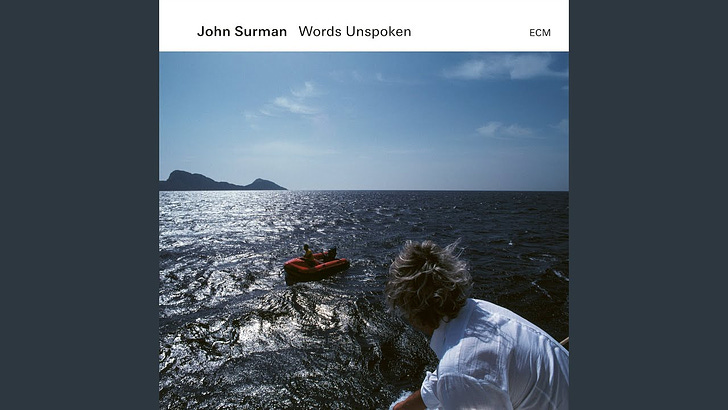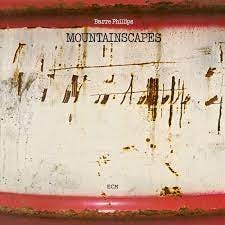A Few Stops in the Long Journey of John Surman
As his new album drops, revisiting a remarkable creative cauldron involving Surman, Barre Phillips and Dieter Feichtner (who?).
“Mountainscape 7,” one of eight strikingly original atmospheres on bassist Barre Phillips’ 1976 work for ECM, begins with a twinkling analog synthesizer arpeggio. It lives up in the high register, and it moves in a not-quite circular motion that evokes wildflowers set in motion by wind. The arpeggio is a constant, running throughout. It swirls above the slow theme played by Phillips on bass, providing a textural backdrop.
This piece sits apart from the other, freer moments of Mountainscapes. The synth texture, created by a German sound explorer named Dieter Feichtner (more on him in a moment), isn’t quite a loop – it’s being manipulated live, with Feichtner adding dissonant notes to stretch the harmony or slipping in an extra step or two to break the symmetry of the pattern. If we could isolate the keyboards, we’d hear a genius working deviously to stir things up from the faraway margins.
Mountainscapes is one of the landmark European improvised music documents ECM released in the 1970s. I hadn’t thought about it in years until I heard “Graviola” from Surman’s new ECM release, Words Unspoken, which comes out Friday. (Alas “Graviola” is not one of the two early tracks posted by ECM, but the majestic title track does give a sense of the project.) “Graviola” centers on an arpeggio as well – it’s first played by vibraphonist Rob Waring, then guitarist Rob Luft. Surman’s on bass clarinet, and his hollowed-out tone floods the track with calm. He’s dancing around the poignant theme, feathering rather than hammering it.
These works were created 48 years apart. They’re hardly mirror images of each other, but they share traits: The phrase-based framework, the sensitivity and lightness of the ensembles, and, most of all, the shadow-dwelling presence of Surman, whose deep brooding tones on soprano and baritone saxophone and the unwieldly bass clarinet set him apart from the many ninja technicians of modern jazz. The unspoken words from notes I took listening to the new album: “This musician should be more widely known!” and “He’s spinning such an aura around the notes.”
Surman is now 79 years old. He’s been exploring a highly individual approach to improvised music for decades, with intermittent commercial success. His episodic original works link the questing-for-transcendence quality of free improv with the misty (and mystical) openness of English folk songs with jolting dynamic and density contrasts similar to those on Led Zeppelin’s Physical Graffiti and other rock projects.
And that’s just one aspect of Surman’s art. As part of groups led by pianist Paul Bley (the ever-astonishing Fragments, with Bill Frisell), Phillips, drummer and composer Jack DeJohnnette and others, Surman has forged a unusual balance – between the polyrhythmic intensity those groups frequently demand and his distinctly serene, melody-forward orientation. When there’s shredding around him, he resists the impulse to join it, choosing instead to contribute wailing sustained notes and squibs of dissonance that make the shredding seem profound. When there’s calm, he agitates. His sense of restraint, his knack for aptness, could be a model for the aforementioned ninjas.
And as the new work makes clear, Surman is a master of the lament. His songs visit thick, often intractable emotional areas, catching strong wisps of sadness or disquiet or melancholy while rarely stopping for a good cry. The music keeps going, moving like a slow river, finding new resonances as it moves.
Returning to Mountainscapes got me thinking about Surman’s development, and particularly the creative ethos he was immersed in during the early/mid 1970s. The saxophonist’s first prominent gig was in the band led by Mike Westbrook during the mid to late 1960s; he made his solo debut in 1968 and the following year contributed to John McLaughlin’s Extrapolation and began a long association with Phillips and another American ex-pat, drummer Stu Martin. The Trio, as this group was called, operated on a bandwidth of roiling irreverence and a penchant for extremes; it led Surman to some of the more frenzied improvisational excursions of his career. Check this performance from 1975 in Hamburg with Phillips and Feichtner.
This music is contemporaneous with Mountainscapes, and it’s interesting to hear how Phillips seized and rechanneled its energy for his compositions, while Surman, who by then had done Westering Home (1972) by recording entirely solo with synths and multi-tracked winds, adapted some of Feichtner’s approach to architecture in his subsequent works. Right up to Words Unspoken.
As for Feichtner, he left behind most band activity in order to focus on the real-time recording of solo synth performances using his intricate rig, often at loud volume in open-air settings in the countryside. These are curious and ear-stretching and impulsive and deserve more attention in histories of electronic music. That’s partly because they wander so far from convention, but also because they’re so vividly textural – at times it sounds like Feichtner is lunging and scrambling for complementary tones, whatever curiosity might enrich his evolving mass of sound. The music on Anthology Vol. 1, which I only could locate on YouTube, has a wonderful and disarming wildness – it might be a different offshoot branch from the work of Surman or Phillips, but it shares some roots.
Possibly my favorite aspect of this journey: In the course of celebrating one unfortunately underappreciated artist, John Surman, I wound up encountering another, even less celebrated one, Dieter Feichtner, who is now a minor obsession. (He’s also on Phillips’ 1978 Three Day Moon!). Music is like that.







as usual....thanks for the great tip!! You've been consistent for over 30 + Years!!!!
Gosh, I love Adventures of Simon Simon, and Extrapolation, yet it is strange to imagine the same artist creating in both those recording, so different and original. I've been hunting for Tales from the Algonquin for a while (ECM is not the easiest to ferret out the back catalogues aside from their biggest artists). It is really remarkable following Surman's journey.